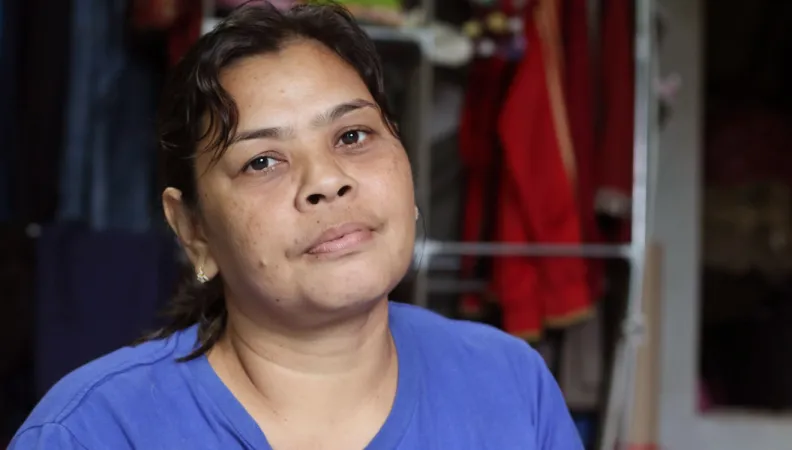Share the page
“Together in Solidarity”: Burmese Migrants try to cope with Covid-19
Published on

Since the outbreak of the Covid-19 pandemic, life has become even harder for many migrants. Not least in Southeast Asia, where people fleeing Myanmar have found a less than a warm welcome in neighboring countries. We catch up with a Burmese woman who is struggling to provide for her family in Thailand, while supporting her community back home.
When strict measures were taken in Thailand to control the Covid-19 epidemic last March, Khin Mae Soe and her family, along with thousands of other migrant families, were among the first to be affected. The country went into lockdown and has since been in a state of health emergency. Those dependent on a modest daily wage, suddenly deprived of work, can hardly make ends meet.
“I’m still working on this rubber plantation, but there’s less work and my income has gone down in the past few months”, says Khin Mae Soe. “It doesn’t leave me with enough money to support my family, especially my sick father who lives in Myanmar. My nephew has also been affected: he used to work on a chicken farm which has shut down. He’s lost both his job and visa”.
When we met Khin Mae Soe last December, she told of her odyssey from Myanmar to Thailand. But many have found their new lives unbearable. Her nephew was among the more than 100,000 Burmese to have returned home in recent months.
Thousands who began the journey back are stuck at border crossings. Quarantine centers in Myanmar lack the capacity to receive the massive influx, and many migrants lack the resources to sustain themselves in quarantine for 28 days.
Community leaders like Khin Mae Soe are facing head-on these mounting difficulties, with the backing of the Foundation for Education and Development (FED), which is in turn supported by the NGO Terre des hommes and financed by Agence Française de Développement (AFD).
Emergency aid
Back in early March, FED provided emergency aid to migrant workers in difficulty in several provinces: in Phang Nga and Mae Sot in Thailand and in Kayah State in Myanmar. The NGO distributes hygiene and prevention packs to cope with Covid-19, as well as food packs with basic necessities. The community leaders help identify needy families and inform them about the aid they can receive. More than 1,000 adults and 370 children have benefited from the aid so far.
Above all, the leaders facilitate access to healthcare. “I work with FED to help with the procedures to request health insurance, particularly for children," says Khin Mae Soe. "And I do the interpreting during hospital visits.”
Overcoming the language barrier
Often, confusion reigns. Unable to speak Thai, many migrants who have remained in the country, do not understand important health instructions issued by the authorities. Burmese people organize themselves into groups to translate the latest government information and raise awareness about necessary protective measures.
“We are also giving young people aged between 13 and 15 the opportunity to study Thai under the FED program for young people,” says Khin Mae Soe. “I teach basic Burmese and English to children free every weekend.”
Despite the desperately difficult conditions, Khin Mae Soe is proud of how much they have achieved. “I’m really pleased to be an active member of our community, working together in solidarity to cope with the economic and health consequences of the pandemic.”
